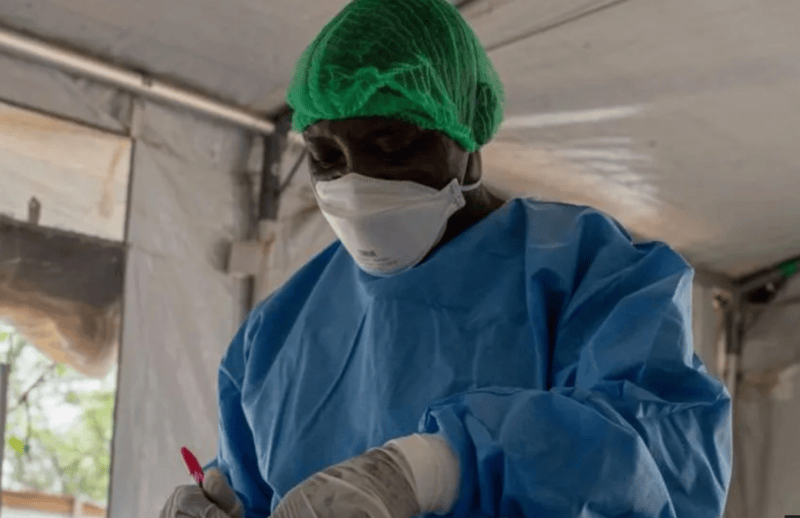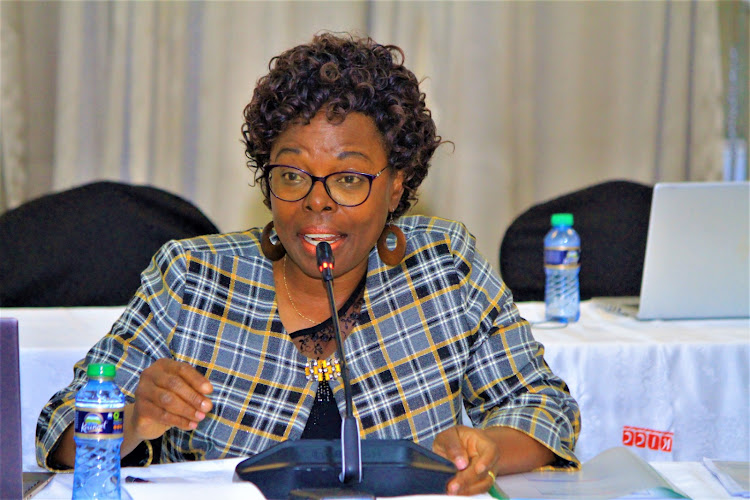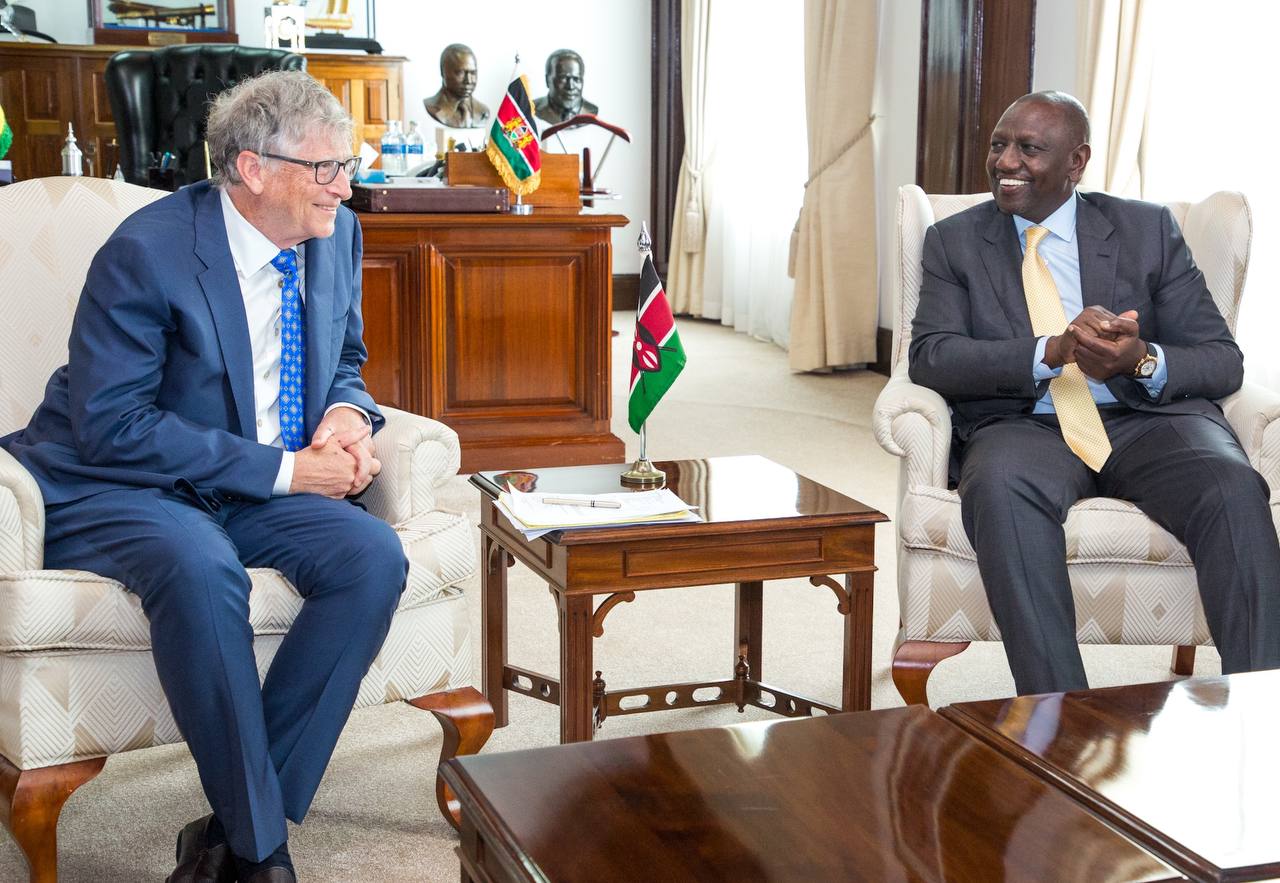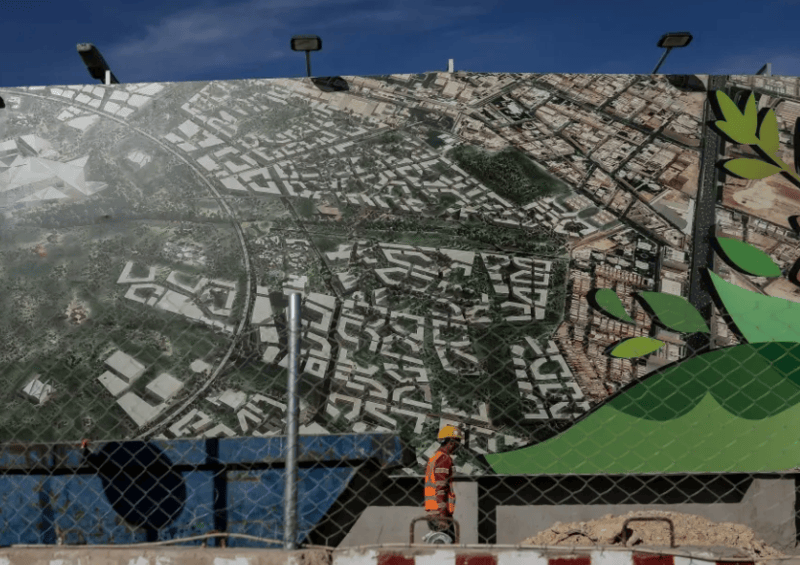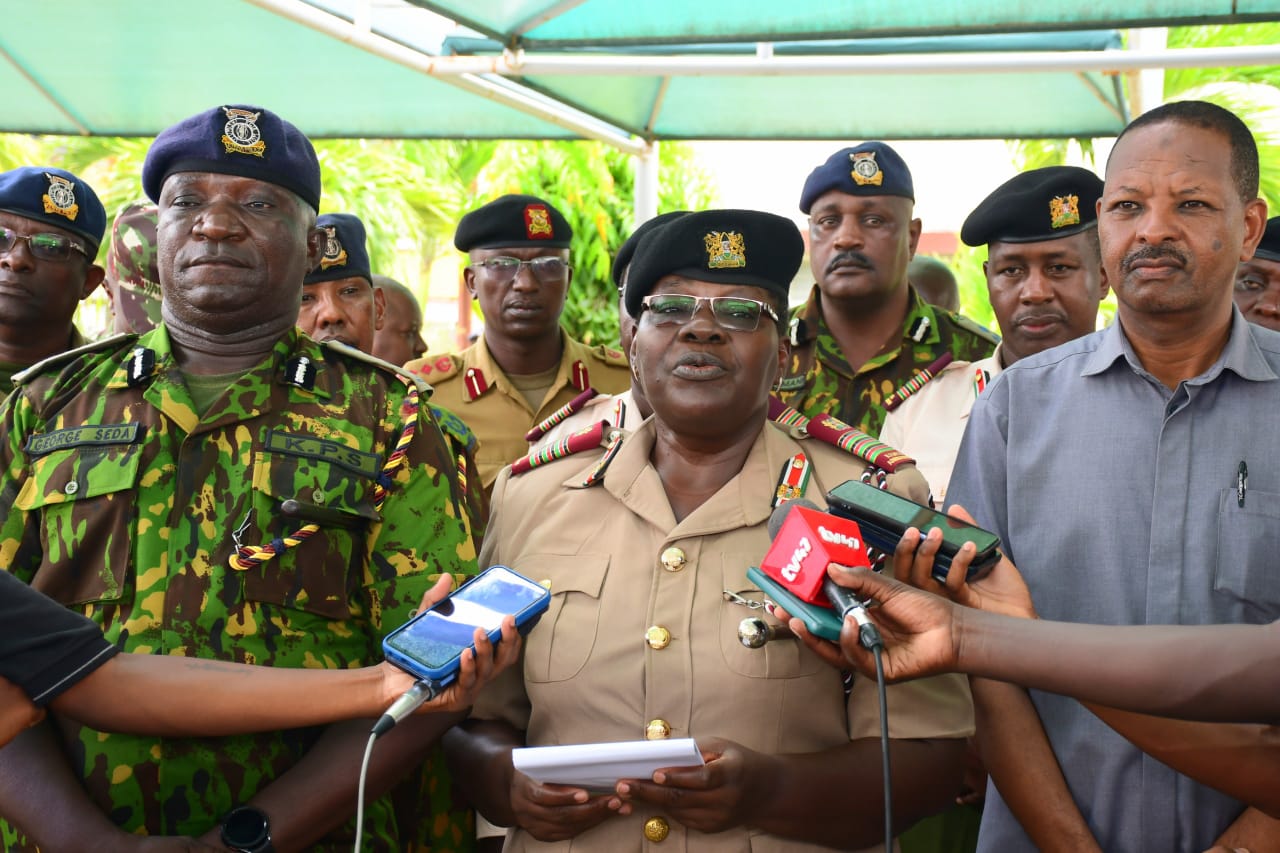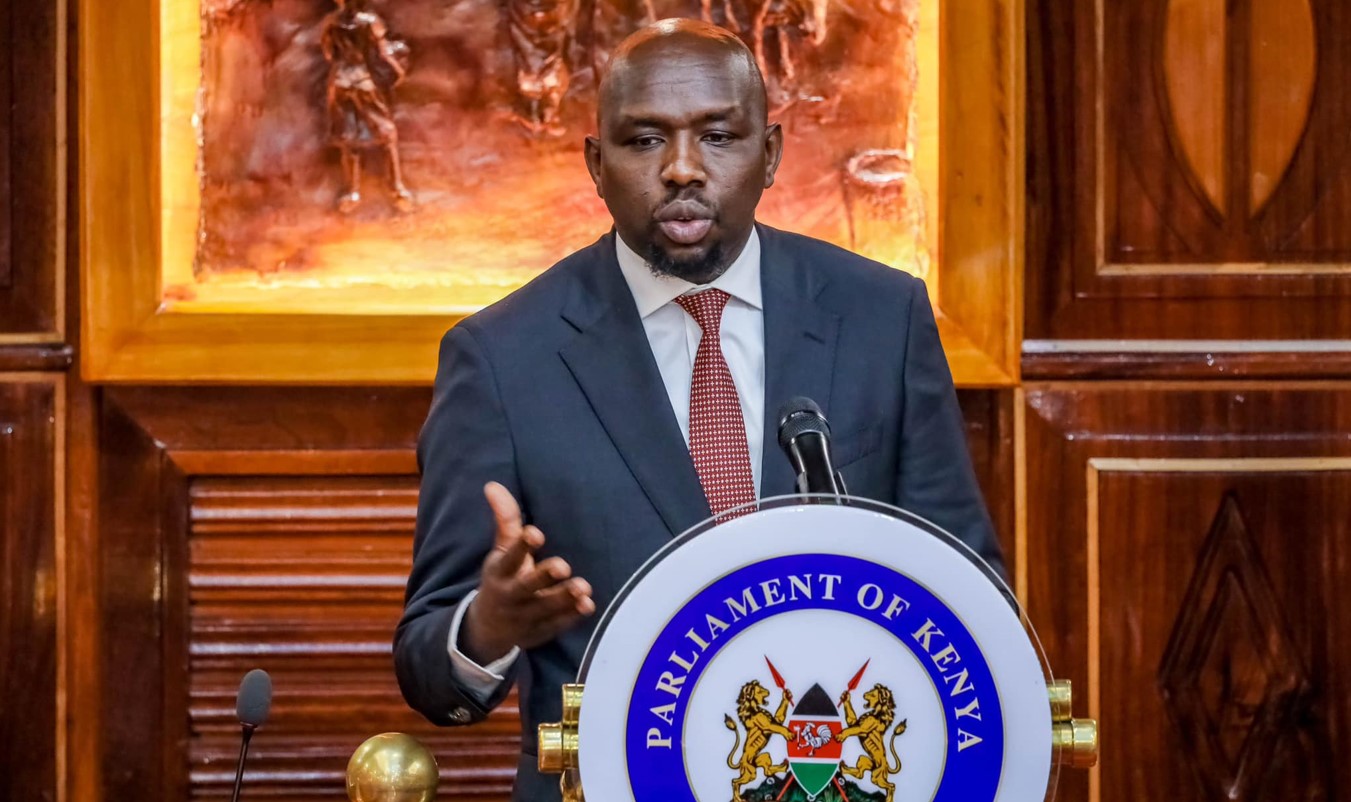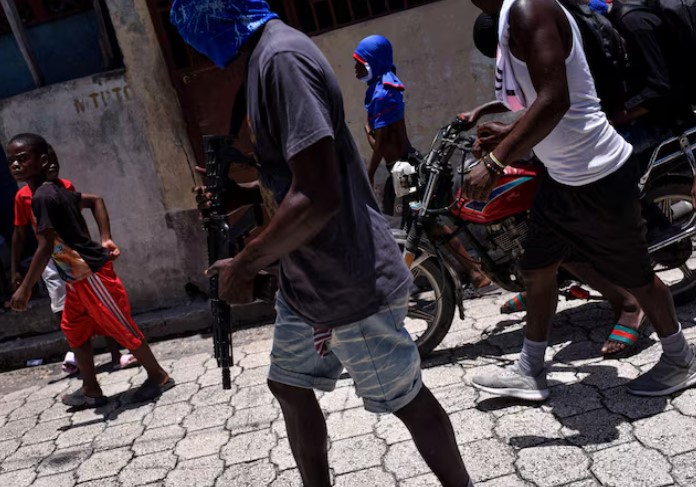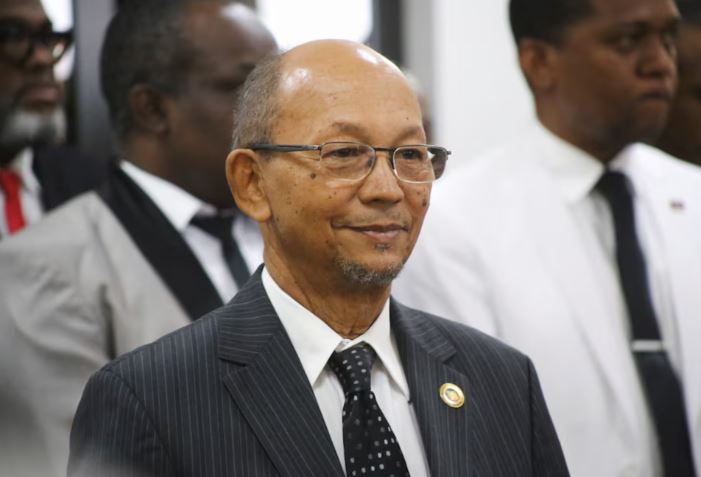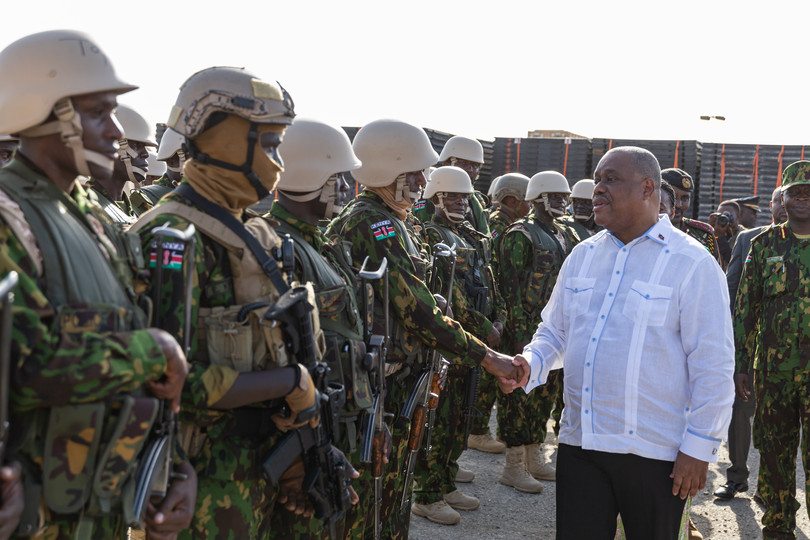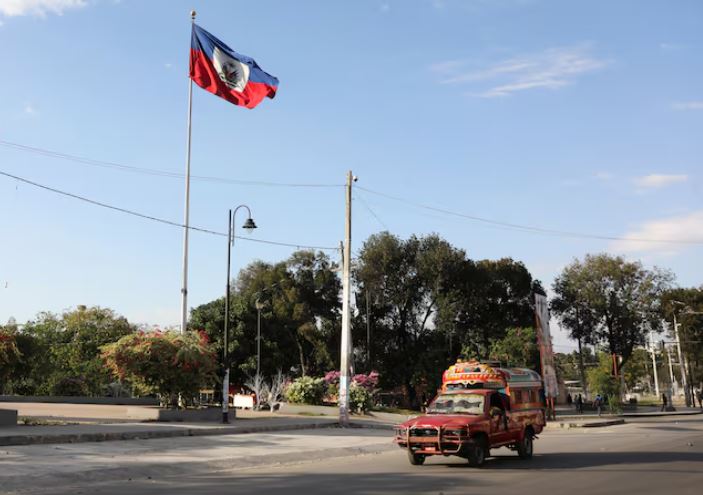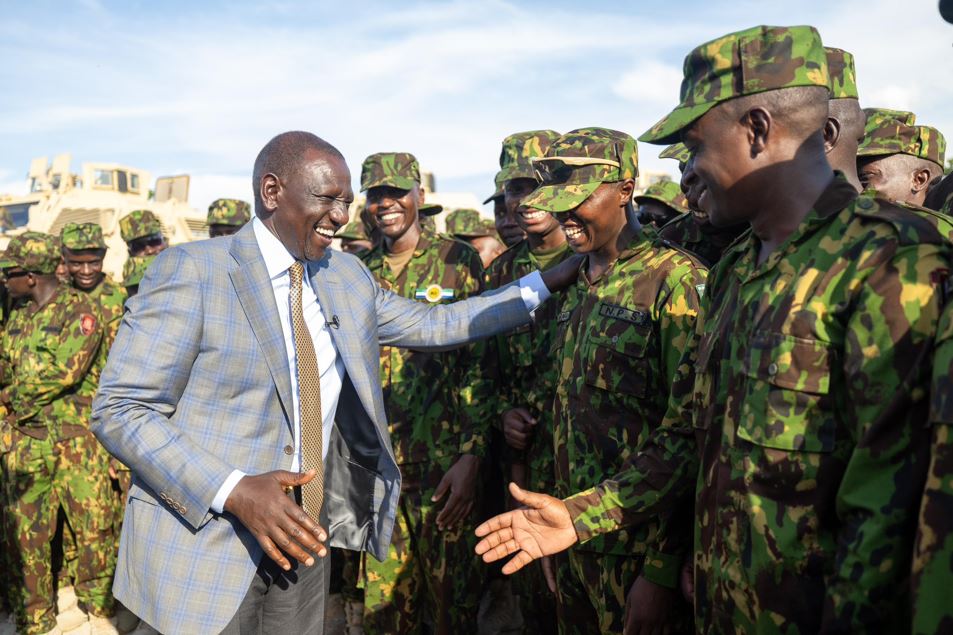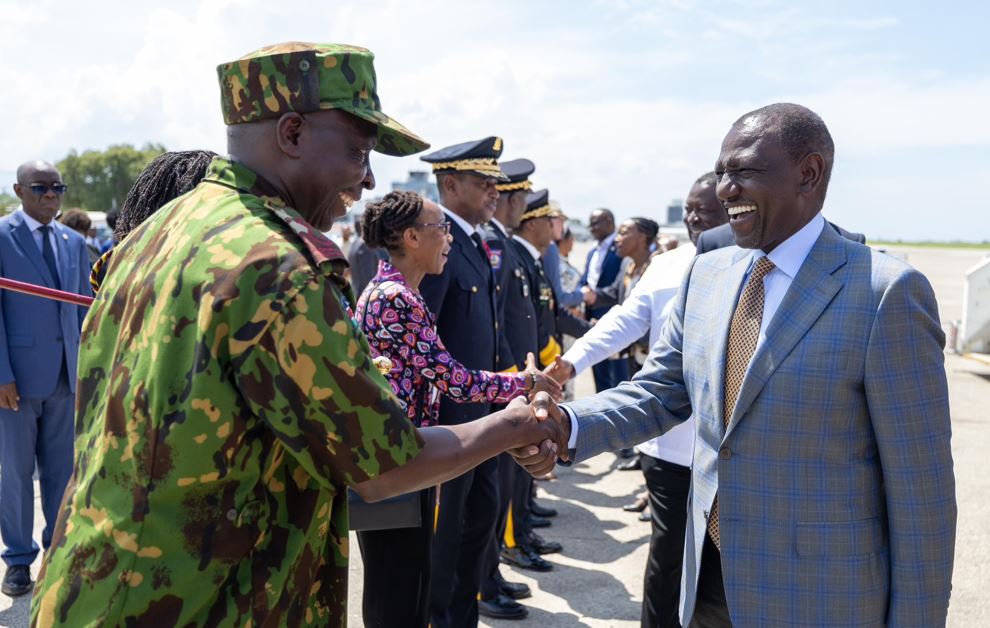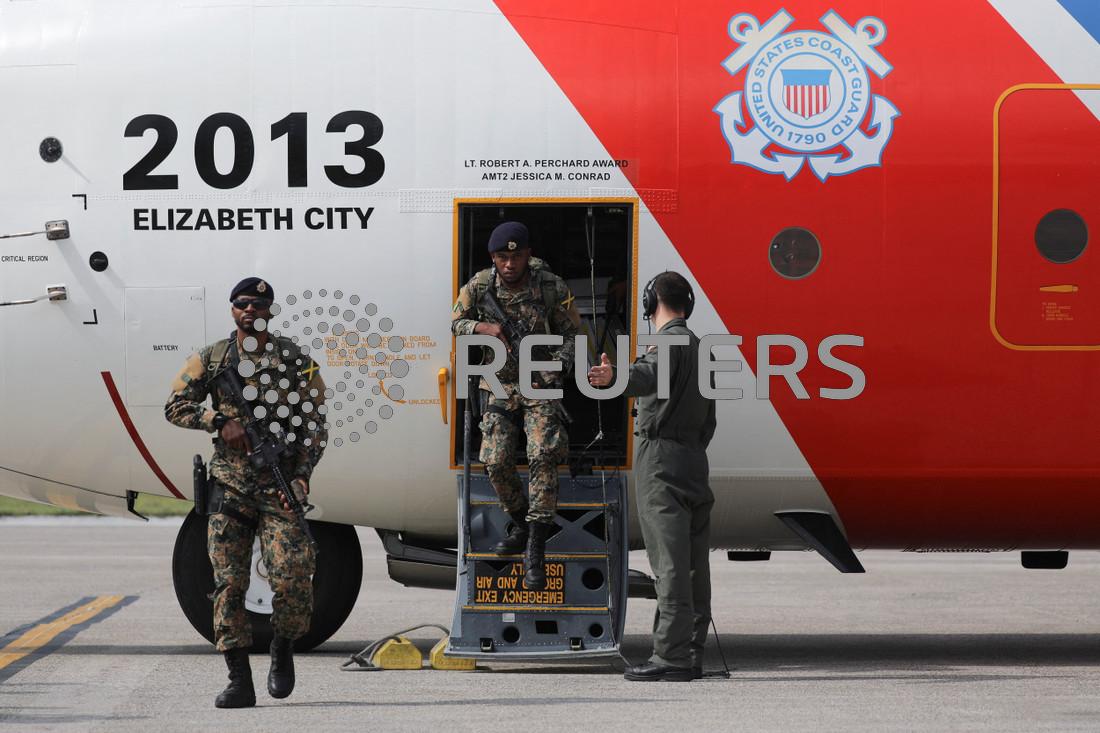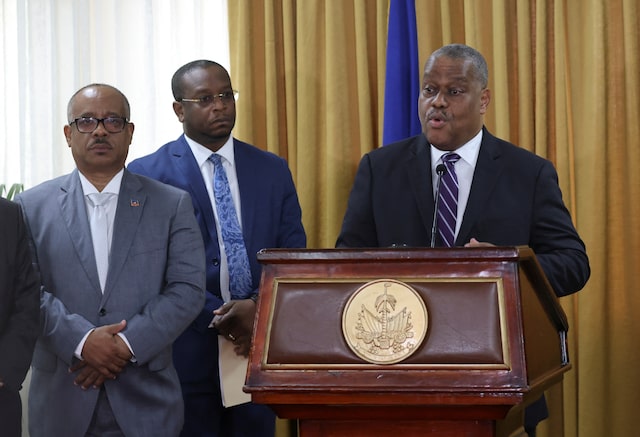Kenyan police to leave for Haiti next week to fight gang-driven chaos
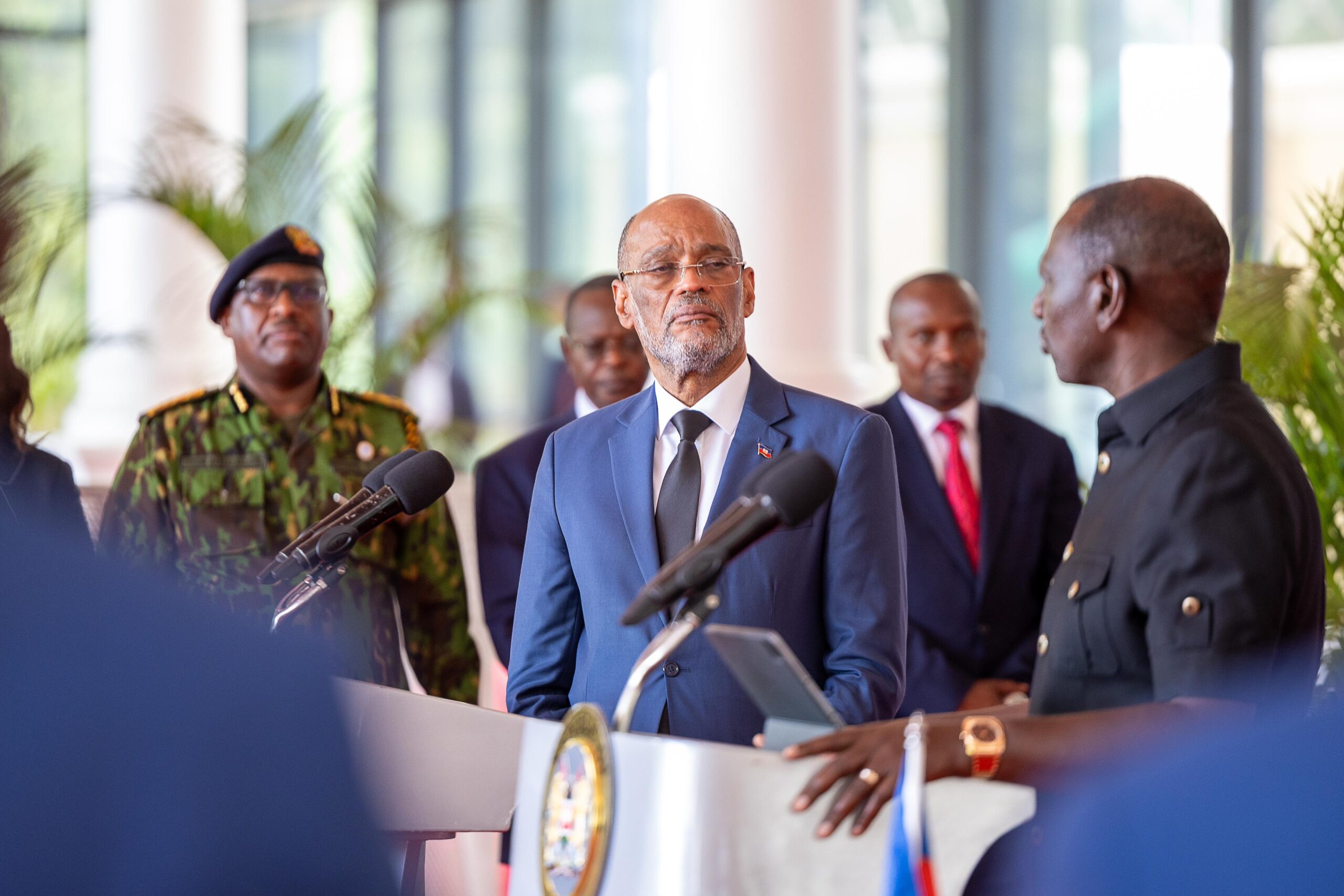
By Amina Wako |
Departing for Port-au-Prince on May 21, the officers will take command of the troubled Caribbean nation on Kenya’s first mission of this kind.
Kenyan police officers, trained since late last year, are gearing up for a historic mission of leading a multinational force to combat gang-driven chaos in Haiti.
Departing for Port-au-Prince on May 21, the officers will take command of the troubled Caribbean nation on Kenya’s first mission of this kind.
Keep reading
The deployment has been expedited at the behest of Washington, ahead of President William Ruto’s state visit to the US on May 23. The mission, fully funded by the American taxpayers, is expected to feature prominently during Ruto’s visit.
Washington’s defence contractors are already setting up base in Haiti in preparation for the arrival of the Kenyan forces.
According to sources, the initial contingent of 200 officers will arrive in Haiti ahead of Ruto’s meeting with US President Joe Biden.
The deployment has, however, sparked controversy in Kenya, prompting heated discussions in parliament and among officials from various ministries regarding the country’s participation and leadership of the mission.
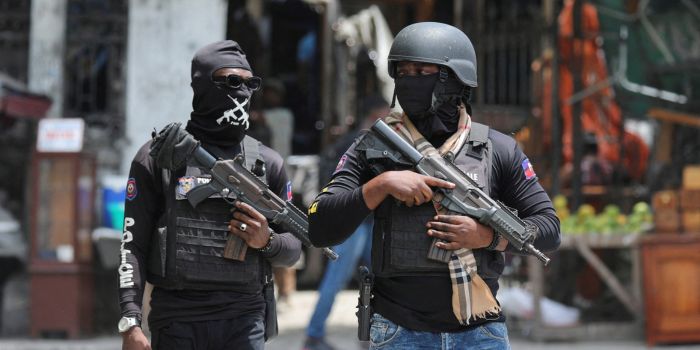 Police officers stand guard in the street, in Port-au-Prince, Haiti May 1, 2024. (Photo: Ralph Tedy Erol/Reuters)
Police officers stand guard in the street, in Port-au-Prince, Haiti May 1, 2024. (Photo: Ralph Tedy Erol/Reuters)
One key question has been why Kenya opted to deploy police officers instead of the army.
According to Brigadier General Emiliano Tonui, who is experienced in UN peacekeeping missions, Kenya must contribute civil police, not military, to the UN-backed mission under Chapter VII of the United Nations Charter, which authorises the UN Security Council to take action to maintain or restore international peace and security where there are threats to peace.
This multinational force, okayed by the UN Security Council (UNSC) last year but mobilised by international supporters, will operate independently of the UN.
The United States, despite its failed military interventions in Haiti, has played a significant role in the formation of this multinational force, which UN boss Antonio Guterres says must be highly specialised to effectively combat gangs.
Although the Security Council insisted the mission should be funded through voluntary contributions, Kenyan government officials had insisted the country would deploy its contingent only if the costs of deployment were met by UN member states.
Tonui said UN peacekeeping missions typically involve deploying military or civilian personnel to maintain peace and security in conflict areas. On the other hand, a peace enforcement mission involves the use of military force, including combat operations, to restore peace.
Nature of mission
Unlike peacekeeping missions, peace enforcement missions like the one for Haiti are authorised by the UNSC under Chapter VII of the UN Charter and may involve more robust and proactive measures to address conflict situations. UN peacekeeping missions are typically authorised under Chapter VI of the UN Charter.
Tonui said every type of weapon allowed on UN missions is used for enforcement.
“This means there will be roadblocks, curfew timings, building searches, voluntary and involuntary disarmament, area cordoning, and building searches among other enforcement activities,” he said, adding that there is no potentially negative impact of the deployment on Kenya’s national security.
“Haiti is too far from Kenya, hence there is no negative impact on our national security as compared to our past peacekeeping in South and North Sudan, DRC, and currently in Somalia,” Tonui said. But he said it is normal for deployments in peace enforcement to come with consequences.
“All peace enforcement troops be they UN military or civilian police must expect some casualty rate,” he said.
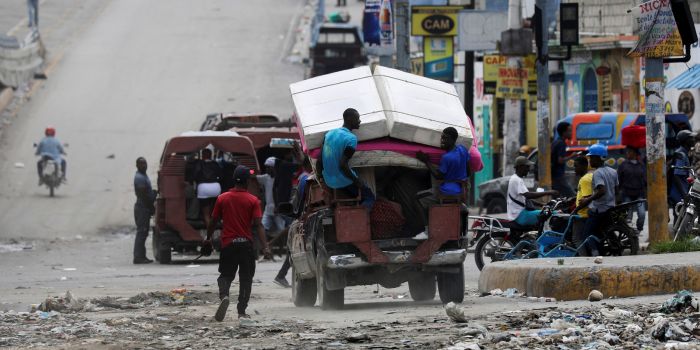 Residents of the Lower Delmas area transport belongings as they flee their homes due to gang violence, in Port-au-Prince, Haiti, on May 2, 2024. (Photo: Ralph Tedy Erol/Reuters)
Residents of the Lower Delmas area transport belongings as they flee their homes due to gang violence, in Port-au-Prince, Haiti, on May 2, 2024. (Photo: Ralph Tedy Erol/Reuters)
Analysts say many in the US are wary of Washington’s history of occupation and intervention in the Caribbean nation.
In 1915, the US invaded Haiti and occupied it for nearly two decades, ostensibly to restore order. But it left behind more chaos.
Jonathan M. Katz, the author of The Big Truck That Went By: How the World Came to Save Haiti and Left Behind a Disaster, criticises the US for backing a “democratic vacuum” in Haiti since President Jovenel Moise was assassinated in July 2021, and not supporting a plan to restore democracy.
In 1994, former US President Bill Clinton sent over 20,000 troops to restore Jean-Bertrand Aristide, who had been ousted as president in a 1991 military coup.
The move worked, and the junta backed down. But this was short-lived.
Ten years later, the US led another international intervention when Aristide’s government was again overthrown. But all these interventions by the US failed to democratise Haiti.
Violence by gangs connected to the state is not new in Haiti, but several factors have contributed to their existence to date.
Political leaders as far back as Francois “Papa Doc” Duvalier, Haiti’s populist elected leader-turned-dictator, have formed and utilised armed groups outside national security forces for protection or to enforce their agendas, according to an October 2022 report from the Global Initiative against Transnational Organised Crime.
The gangs currently wreaking havoc in Haiti are affiliated with two groups, G-Pep and G9, which fight for control of the capital, Port-au-Prince.
An estimated 60 per cent of the capital is under the control of these groups, which terrorise civilians with threats of murder, abductions for ransom, extortion, and sexual violence.
Moise, who came to power in 2017 after a controversial election, was accused of aligning with the G9 gang, which worked as his security force until his assassination.
Reader comments
Follow Us and Stay Connected!
We'd love for you to join our community and stay updated with our latest stories and updates. Follow us on our social media channels and be part of the conversation!
Let's stay connected and keep the dialogue going!

